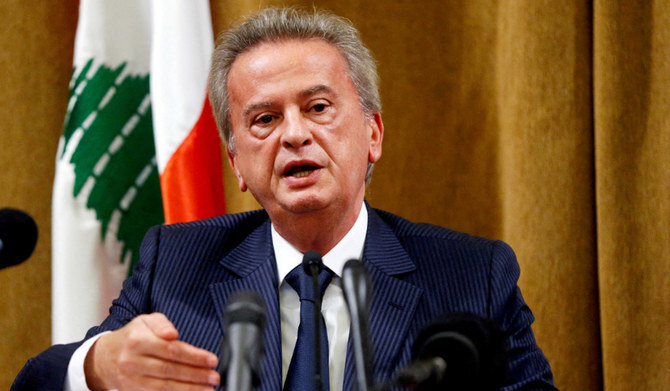BEIRUT: Lebanese Prime Minister Nawaf Salam announced on Friday that the government was working on establishing an executive mechanism to transition Lebanon into a digital state.
Lebanon is focused on using all its resources and connections to leverage external expertise in order to pursue the government’s development goals, he stated during a meeting with a delegation of business leaders.
The Cabinet approved a mechanism for administrative appointments in state institutions on Thursday, which Salam described as “transparent and competitive.”
Media reports in Beirut on Friday characterized this mechanism as a “theoretical qualitative leap and a reformative advancement in the selection of public sector employees. However, the critical factor remains its successful implementation.”
The position of governor of Lebanon’s central bank, the Banque du Liban, is currently vacant as President Joseph Aoun and Prime Minister Salam have not yet reached an agreement on the most suitable candidate. In the meantime, the judiciary is awaiting the findings of the financial public prosecutor regarding the investigation into the bank’s former governor Riad Salameh.
Salameh has been in pretrial detention for the past seven months on charges of embezzling public funds.
A judicial source told Arab News that Investigative Judge Bilal Halawi had concluded the investigation into Salameh’s case after issuing two in absentia arrest warrants for Salameh’s advisers.
The case has now been referred to Financial Prosecutor Judge Ali Ibrahim for review in preparation for issuing an indictment.
There is no specific deadline for the financial prosecution to respond.
Salameh — along with two lawyers, Michel Tueini and Marwan Issa Khoury, who served as advisers at the central bank — is being prosecuted for allegedly embezzling over $40 million from the bank’s funds. It is claimed that this amount was transferred to Salameh’s account with the assistance of Tueini and Issa Khoury.
In the ongoing pursuit of corruption cases, Judge Jamal Hajjar, the public prosecutor at the Court of Cassation, has moved to ban former Economy Minister Amin Salam from traveling.
The decision was made based on a report from the National Economy, Industry, Trade, and Planning Committee.
It also included his advisers Karim Salam and Fadi Tamim, as well as financial auditor Elie Abboud.
On Thursday, MP Farid Boustany, the committee’s chairman, lodged a complaint with the Public Prosecutor’s Office against the former minister, his advisers, and Abboud as a signatory.
The complaint alleges “bribery, influence-peddling, blackmailing insurance companies, mismanagement of public funds, and money laundering.”
In response to these accusations, Salam denied the charges, claiming they were part of a “systematic campaign of personal or political targeting” against him and his team.
Salam served as the economy minister for less than four years in the Najib Mikati government.
A report from the Parliamentary Observatory determined that Salam “misused his authority over the Insurance Control Commission, which oversees the insurance sector, for personal benefit at the expense of public funds.”
A judicial source informed Arab News that the travel ban was a preliminary measure aimed at ensuring that the suspects are notified about their upcoming interrogations, scheduled to occur soon at the Palace of Justice in Beirut.
The National Economy Committee of Parliament prepared a dossier detailing “violations” by Salam during his time in office.
The committee had previously summoned him to discuss the oversight of insurance companies by the ministry.
Salam did not attend three sessions, leading the committee to refer the case to the public prosecutor at the Court of Cassation and the financial prosecution for further action.
In 2023, sources said suspicions arose after his adviser, Tamim, was accused of blackmailing insurance companies for hundreds of thousands of dollars to prevent the revocation of the company’s license.
“Tamim was arrested, and it later came to light that Minister Karim Salam, the brother of the minister, had pressured insurance companies to pay large sums for mandatory solvency studies through a firm owned by Tamim. These actions resulted in accusations of abuse of power and blackmail.
“The National Economy Committee uncovered evidence that former Minister Salam misused public funds, spending over $50,000 a month on his office and engaging in questionable contracts.”
























